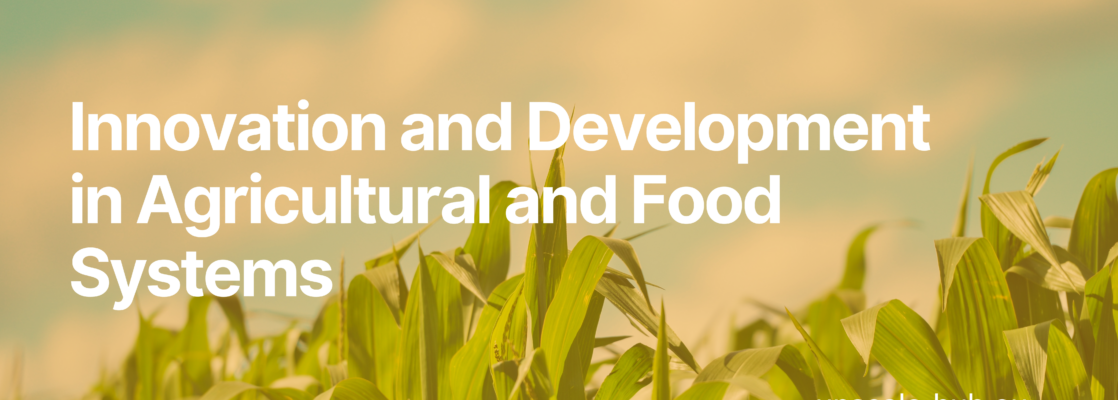Africa’s agricultural sector is crucial to the continent’s economic growth, food security, and poverty reduction. However, the sector faces numerous challenges, including climate change, soil degradation, limited access to markets, and inadequate research and development (R&D). To address these challenges, innovation systems-based agricultural R&D has emerged as a promising approach. This article explores the concept, benefits, and implementation of innovation systems-based agricultural R&D in Africa.
What is Innovation Systems-Based Agricultural R&D?
Innovation systems-based agricultural R&D is an approach that emphasizes the interaction and collaboration among various stakeholders, including farmers, researchers, policymakers, private sector actors, and civil society organizations. This approach recognizes that innovation is a complex, dynamic, and multi-actor process that requires a systems perspective. It focuses on creating an enabling environment that fosters innovation, adaptability, and resilience in agricultural systems.
Key Principles of Innovation Systems-Based Agricultural R&D
- Multi-stakeholder partnerships: Collaboration among diverse stakeholders to leverage knowledge, resources, and expertise.
- Farmer-centered approach: Farmers are at the forefront of innovation, and their needs and priorities drive the R&D process.
- Adaptive management: Flexibility and responsiveness to changing circumstances, such as climate variability.
- Systems thinking: Understanding the interconnectedness of agricultural systems and the need for holistic solutions.
- Capacity building: Strengthening the capacity of stakeholders, particularly farmers and researchers, to innovate and adapt.
Benefits of Innovation Systems-Based Agricultural R&D in Africa
- Improved productivity: Increased crop yields and livestock productivity through the adoption of innovative technologies and practices.
- Enhanced food security: Improved access to diverse, nutritious food for vulnerable populations.
- Increased income: Farmers and other stakeholders benefit from improved market access and competitiveness.
- Climate resilience: Adaptation to climate change through the development and dissemination of climate-resilient agricultural practices.
- Sustainable development: Innovation systems-based R&D promotes environmentally friendly and socially inclusive agricultural practices.
Implementation of Innovation Systems-Based Agricultural R&D in Africa
- National and regional innovation platforms: Establishing platforms that bring together stakeholders to share knowledge, resources, and expertise.
- Farmer-led research and extension: Empowering farmers to take an active role in identifying problems, testing solutions, and disseminating innovations.
- Public-private partnerships: Collaborating with private sector actors to leverage resources, expertise, and markets.
- Capacity building programs: Strengthening the capacity of stakeholders, particularly farmers and researchers, to innovate and adapt.
- Monitoring and evaluation: Regular assessment of the impact and effectiveness of innovation systems-based R&D initiatives.
Case Studies: Innovation Systems-Based Agricultural R&D in Africa
- The African Forest Landscape Restoration Initiative (AFR100): A multi-stakeholder initiative aimed at restoring 100 million hectares of degraded lands by 2030.
- The West Africa Agricultural Productivity Program (WAAPP): A regional program that promotes innovation and technology adoption in agriculture through multi-stakeholder partnerships.
- The Kenya Agricultural and Livestock Research Organization (KALRO): A national research organization that adopts an innovation systems approach to develop and disseminate climate-resilient agricultural technologies.
Challenges and Opportunities
- Funding: Securing adequate funding to support innovation systems-based R&D initiatives.
- Policy support: Ensuring that policies and regulations support innovation and entrepreneurship in agriculture.
- Capacity building: Strengthening the capacity of stakeholders to innovate and adapt.
- Scaling up: Scaling up successful innovation systems-based R&D initiatives to achieve broader impact.
Conclusion
Innovation systems-based agricultural R&D offers a promising approach to addressing the complex challenges facing Africa’s agricultural sector. By fostering collaboration, adaptability, and resilience, this approach can contribute to sustainable development, food security, and poverty reduction. As Africa continues to evolve and grow, embracing innovation systems-based R&D can help unlock the continent’s agricultural potential and ensure a brighter future for its people.

